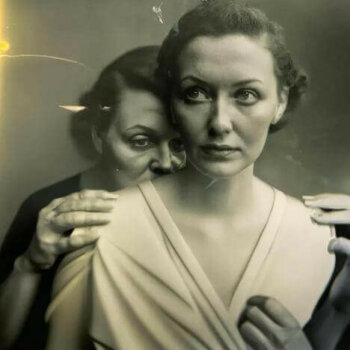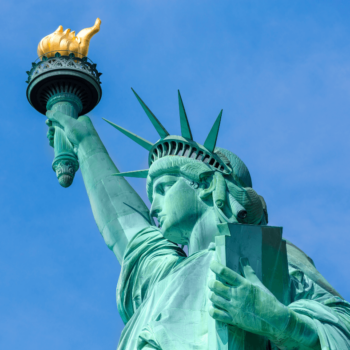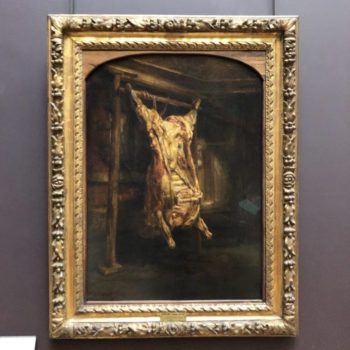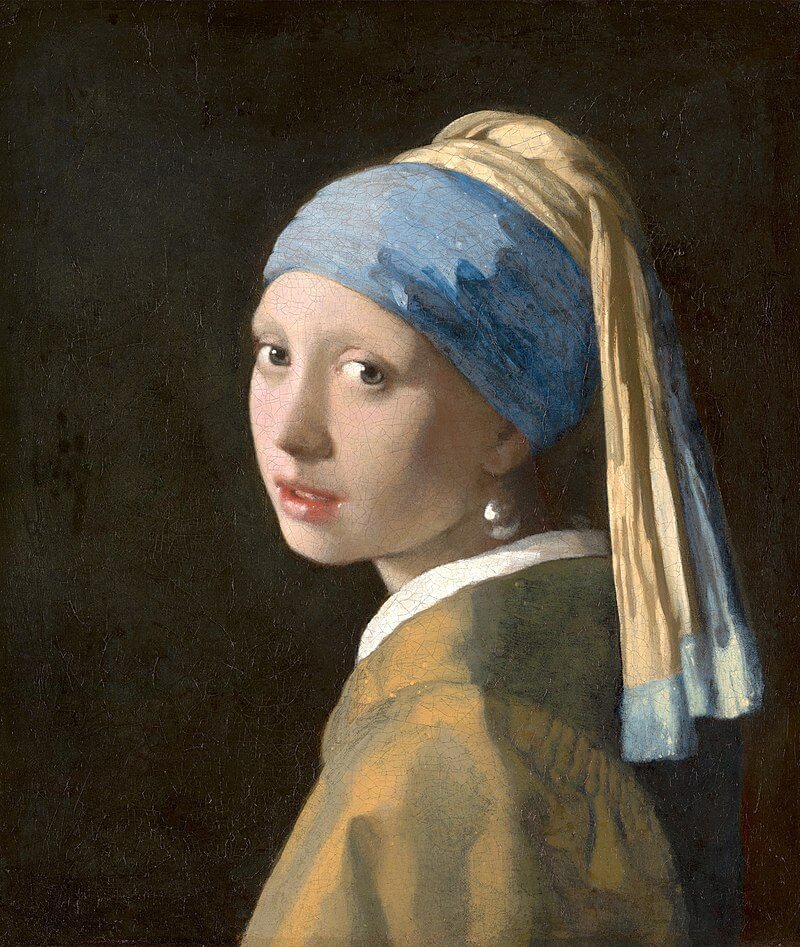
The Girl with the Pearl: classic and pop-culture icon
- Post published:22 August 2023
- Post category:Art Files
“The Girl with the Pearl is certainly the most famous painting by the Flemish painter Johannes Vermeer. Painted around 1665, it is a masterpiece of Flemish painting at the time. Four centuries later, the portrait fascinates contemporary artists, pop-culture and is at the heart of the debate on “artistic creation and AI (artificial intelligence)”.
Well done Johannes Vermeer of Delft! In the 1st half of 2023, the exhibition of 28 of his paintings (out of 37 attributed to the painter) at the Rijksmuseum in Amsterdam attracted 650,000 visitors.
But why does The Girl with the Pearl, mascot of the Netherlands, continue to fascinate and to inspire?
Birth of a flemish masterpiece
In the mid-17th century, art in the United Provinces was characterized by two major social factors. Firstly, the influence of Calvinism deprived artists of religious orders and favored the emergence of private pictorial genres, including portraits. Secondly, the wealth of certain merchant families, who considered art as an investment. Dutch artists of the period developed the art of the tronie, portraits that do not represent a specific person but are character studies.
“The Girl with the Pearl” is a tronie of a very fair-skinned young woman against a plain dark background. Wearing an exotic blue turban and a pearl, she looks over her shoulder at us, her mouth slightly open. Because of its dark background and the sfumato technique (imprecise outlines using glazes), the Girl with the Pearl is sometimes called the “Mona Lisa of the North”.
The Girl with the Pearl : A work that disappears, then makes its way into contemporary art
Painted in 1665, this work disappeared for more than two centuries, only to reappear at an auction in The Hague in 1881 and be bequeathed to the Mauritshuis Museum in the same city in 1903.
In 1994, restoration work removed the old yellowed varnish and restored the work to its original lustre.
In 1999, American author Tracy Chevalier wrote a novel recounting the imagined life of the painting’s model. In 2003, Peter Webber directed a film adaptation with Scarlett Johansson in the title role.
Tracy Chevalier’s novel contributed enormously to the popularization of Vermeer’s masterpiece. Since then, many of contemporary artists, notably photographers, have adapted La Jeune fille à la perle.
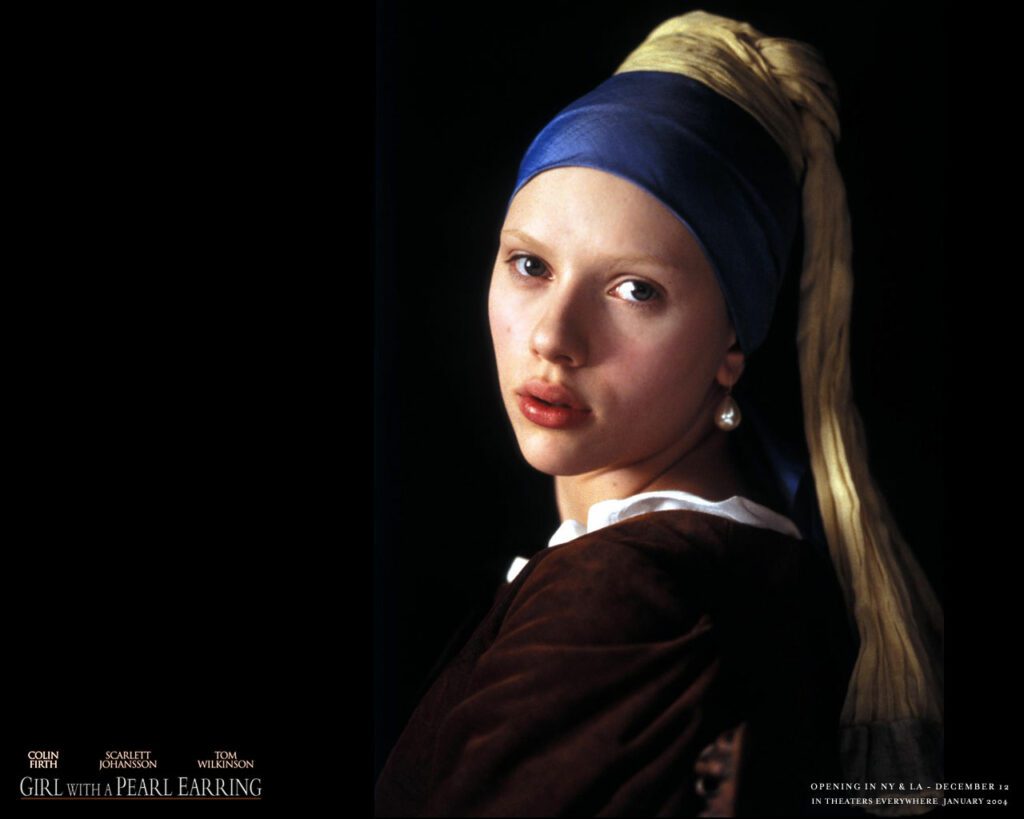
Bansky : street-art for the girl with the pearl
In 2014, artist Bansky created a mural in Bristol in which the pearl was replaced by a wall-mounted alarm box. The title becomes “Girl with the Pierced Eardrum”.
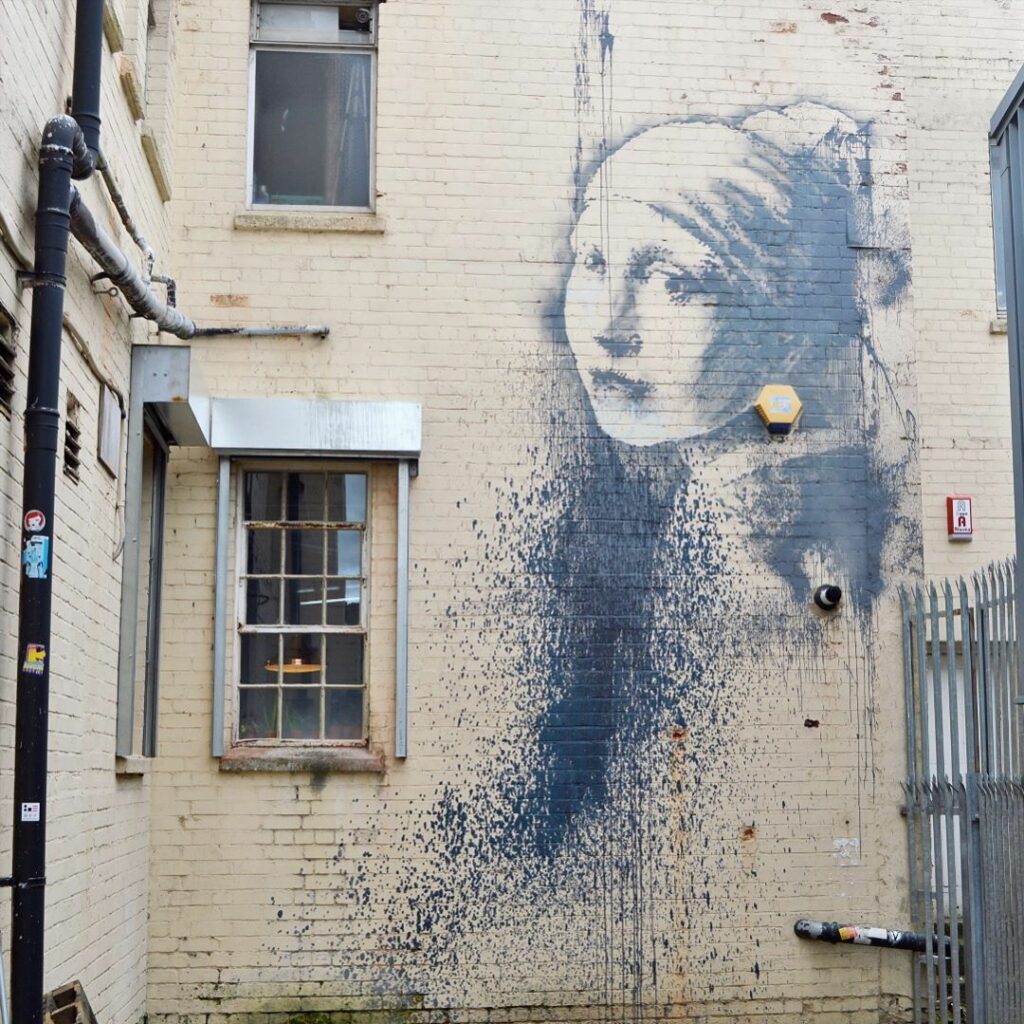
Laura Hofstader: shot of the Girl with the Pearl
At the age of 65, the American photographer produced a series of self-portraits in which she staged herself imitating the paintings of great masters. “In our society, as women age and reach my age, they become invisible”.
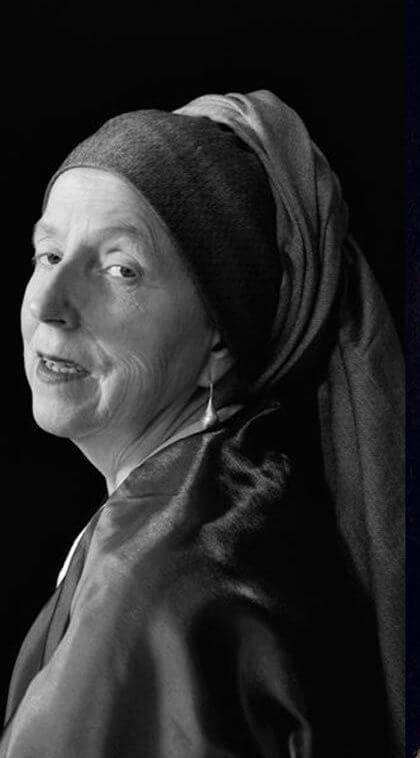
Gemmy Woud-Binnendijk : between painting and photography
The Dutch artist, who explores both painting and photography, has also taken up “The Girl with the Pearl” with a work that captures the very special atmosphere of Vermeer’s work.
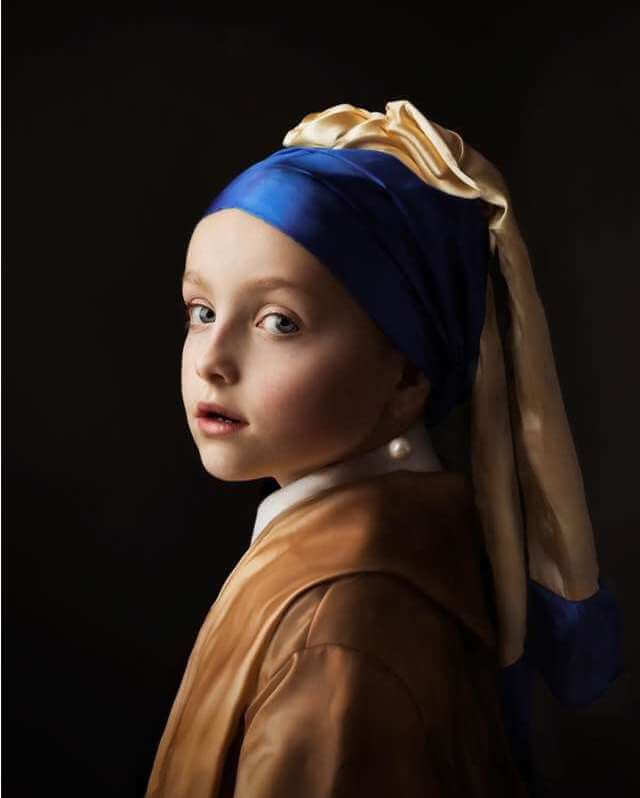
Jenny Boot : "Odes to Vermeer"
In 2018, this Dutch photographer produced a series of single-edition photographs entitled “Odes to Vermeer”, including the famous “Black Girl With Pearl”, which joined the Stedelijk Museum in Amsterdam in 2020.
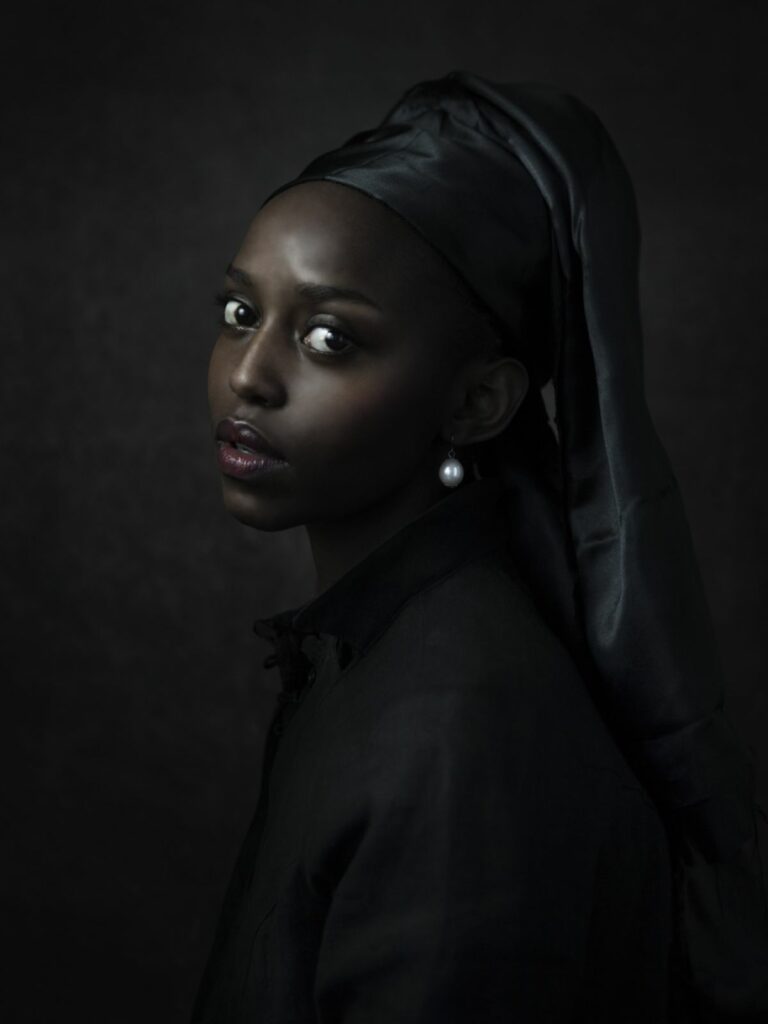
"The Girl with the Pearl" by Ole Fick, Jacques Cauda and Klum Klick
In 2020, surrealist Danish painter Ole Fick proposed his version entitled “Man with Pearl earring”, which overturns the codes of Vermeer’s masterpiece.
Visual artist and writer Jacques Cauda has on several occasions created works inspired by The Girl with the Pearl. [see Jacques Cauda artworks available on the on-line gallery]
The Klum Klick duo is made up of artists Laurent Dachet (known as Laudac) and François Jauvion. Working four-handed, they revisit the classics and have turned their talents to The Girl with the Pearl. [see Laudac artworks available on the on-line gallery], [see Jauvion artworks available on the on-line-gallery]
Artificial intelligence and "The Girl with the Pearl" with Julian Van Dieken
Berlin designer Julian Van Dieken provoked debate when his interpretation of “Jeune Fille à la Perle” was exhibited at the Mauritshuis museum in The Hague, where Vermeer’s painting is housed. Indeed, the artist used artificial intelligence.
Boris de Munnick, the museum’s curator, answers the question by saying :
“We think it’s a beautiful image, we think it’s a creative process (…) and we’re not the museum to discuss whether AI should be in an art museum.”
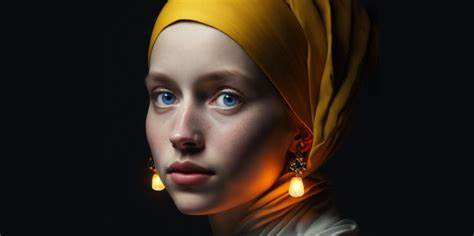
With her fragile, spontaneous humanity, the young girl with the pearl has become a key figure in our collective imagination: a secular icon of eternal youth and a snapshot of ephemeral beauty captured without apparent pause in the movement of everyday life.

The editorial team
The thrill of artistic discoveries

